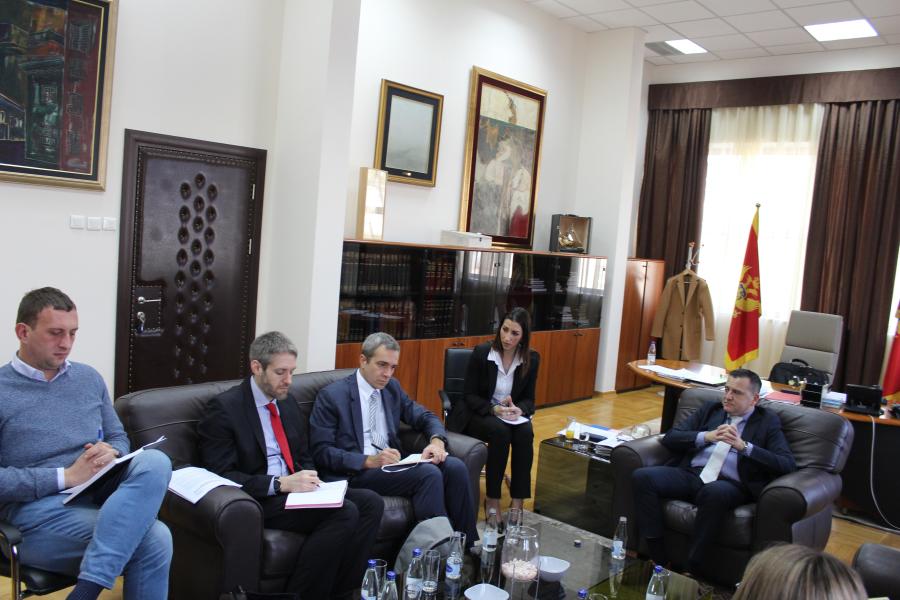
A delegation from EIB Global, the branch of the European Investment Bank (EIB) devoted to operations outside the European Union, visited Montenegro to discuss ways to further support development of the country’s education system and private sector. The team consisted of EIB Global Head of Unit for Enlargement Countries Kadir Bahcecik, Country Manager for Montenegro Giovanni Camisa, and education sector experts Anthony Friedman and Koseleci Nihan.
At a meeting with Miomir Vojinović, Montenegro’s Minister of Education, both parties reaffirmed their commitment to the successful implementation of the Montenegro Education Programme, financed by the EIB with a loan of €18 million signed in 2019. The project will enable the construction of seven new educational institutions and the reconstruction, alteration and refurbishment of ten secondary school buildings.
“We are glad to continue supporting the Montenegrin education sector in order to increase our partners’ capacities and accelerate modernisation of the national education system. For these purposes, we already provided a grant of €2.9 million for technical assistance to the government of Montenegro earlier this year. We are also looking at ways to expand this technical support in partnership with the European Commission and its financial platform, the Western Balkans Investment Framework (WBIF), as well as the European Fund for Sustainable Development Plus (EFSD+),” remarked Kadir Bahcecik, Head of Unit for Enlargement Countries at EIB Global.
Under the WBIF, Montenegro was recently awarded €40 million in grants for three new projects to be implemented in cooperation with EIB Global, including for educational infrastructure development.
EIB Global also seeks to provide additional financing and innovative, sector-based technical support for a comprehensive reform of the education sector in Montenegro. To achieve this as efficiently as possible, EIB Global has held a number of meetings with partner institutions like Unicef, the EU Delegation to Montenegro and the United Nations Office for Project Services (UNOPS), discussing partnership opportunities for a coordinated approach.
A key first step in the reform will be to gauge the current need. “The ministry plans to do mapping of the existing educational infrastructure in order to assess the investment needed to modernise and digitalise educational facilities with new IT equipment and skills. The EIB representatives have expressed their willingness to support these activities going forward,” Minister Vojinović said.
The EIB Global delegation also met with the Investment and Development Fund of Montenegro (IDF). The parties discussed practical solutions for accelerating implementation of the credit line agreed between the two institutions earlier this year to support climate-friendly and energy-efficient investments among local small and medium-sized enterprises. Since 2020, EIB Global and the IDF have unlocked €150 million in more affordable loans to boost the post-pandemic recovery and decarbonisation of the Montenegrin economy.